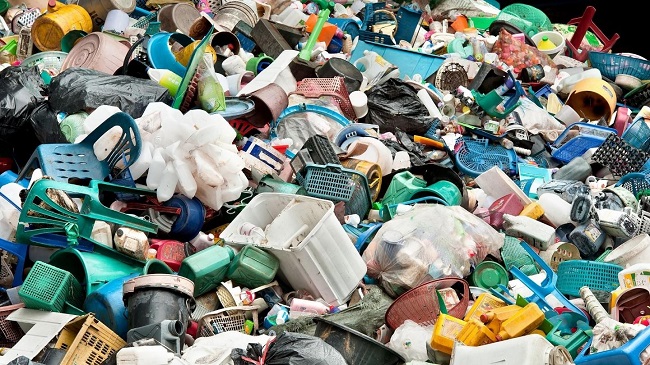An IISD policy brief explains that to change the practice of dumping hazardous wastes, the sources must be identified and governments must be enabled to protect the most vulnerable.

Authored by Jennifer Allan, the brief is part of the “Still Only One Earth” series being released to commemorate the 50th anniversary of the Stockholm Conference on the Human Environment.
In “How to Regulate Our Waste-Full World”, Allan writes that hazardous waste includes the by-products of manufacturing or industrial processes, like toxic ash or sludge. It can be discarded commercial products, like pesticides.
According to Allan, we produce hazardous wastes from our homes, by throwing away asbestos-laden insultation, medications, paints, and electronic waste (e-waste).
Dumping hazardous wastes in the seas, on land, and in developing countries threatens human health (with impacts including cancer, miscarriages, and birth defects) and pollutes the air, water, soil, and wildlife, she adds, pointing out, however, many of these materials have value and could have a second life, such as by recovering and reusing minerals and metals, and recycling other types of waste.
The policy brief also highlights the issue of “waste colonialism” in which toxic wastes from developed countries are relocated to developing countries on “ships of doom”, some of which roam the ocean looking for a port to offload their toxic cargo. The Basel Convention arose out of the need to regulate the hazardous waste trade and ensure that recipient countries are informed of the hazards of the incoming cargo. The Convention entered into force in 1992.
An annex enables the Convention to add new kinds of waste it determines are hazardous – such as household wastes, incinerator ash, and plastic litter – and represents the first global set of rules on plastic litter. Electronic waste has emerged as another important and challenging area of work.
Allan argues that while some of these wastes may not be subject to the Convention’s Prior Informed Consent (PIC) procedure, there are now technical guidelines and greater monitoring and reporting than there would be otherwise. After the Convention took effect, parties began looking for additional ways to manage trade of hazardous wastes. Negotiations led to the Ban Amendment that prohibits developed countries from exporting hazardous wastes to developing countries. The amendment was adopted in 1994, and in September 2019 finally received sufficient ratifications to enter into force.
Allan points out that newly industrialised countries (India, China, and the Philippines, among others) are increasingly trading hazardous wastes among themselves, and the Ban Amendment does not apply to them as developing countries. Yet such countries still lack capacity to safely manage such waste.
The brief suggests that the Ban Amendment could protect the most vulnerable countries, however, by preventing other countries from shipping hazardous waste to them.
